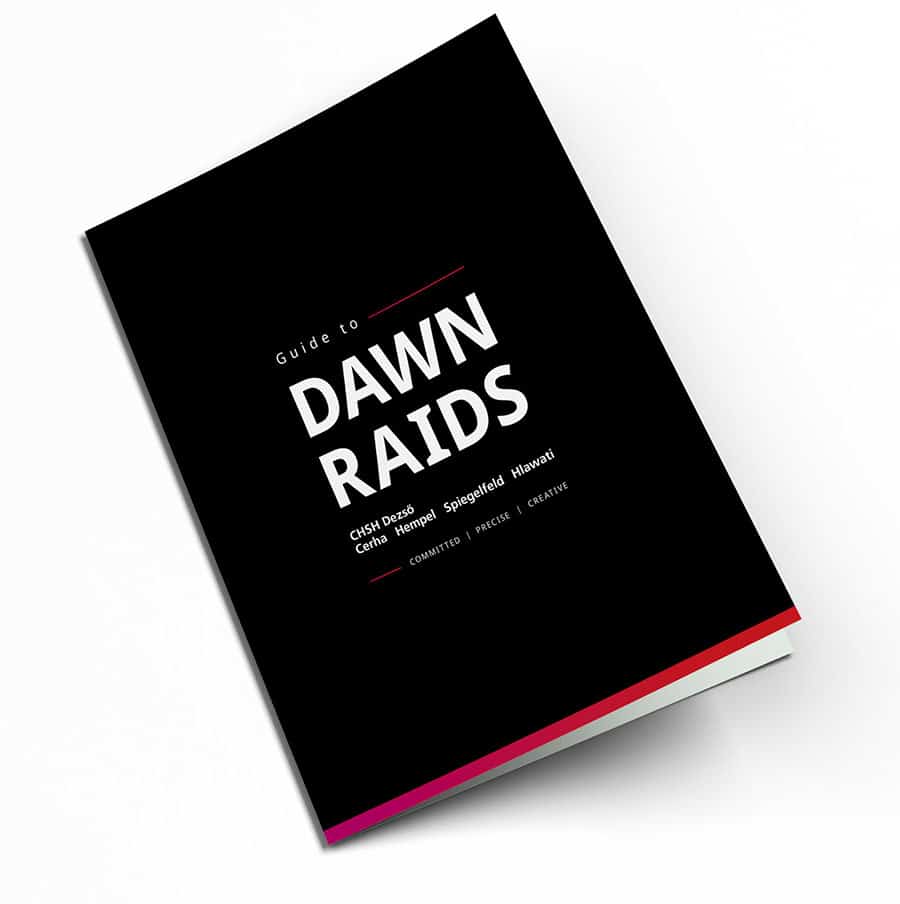Background on consumer protection issues related to online video games
Probably everyone has encountered at least some of the issues surrounding the world of electronic games in one way or another, because unlike previous generations, people today play games beyond their childhood and adolescence. In addition to the myriad of role-playing games, adult board games and card tournaments, the proliferation of online video games has reached unprecedented proportions. And as is the case with increasingly popular and therefore inevitably lucrative ‘industries’, it did not take long for consumer protection aspects to come to light. Experts, Boglárka Priskin senior attorney and Márton Kocsis partner, from CERHA HEMPEL Dezső & Partners Law Firm are here to help you understand the consumer protection aspects of the ever-expanding world of online video games.
Commercial practices in the digital space are increasingly coming to the attention of European consumer authorities and policymakers. The videogame sector also has major importance for the EU economy, with a total estimated value of €23.3 billion in 2020, according to the European Parliament’s report on eSports and Video Games, whilst more than 80,000 people in the EU are working in this innovative sector.
The most concerns that the EU and the national authorities of its Member States have about consumer protection issues in the gaming sector (including games on PCs, mobile phones and game consoles) are related to in-game advertising, offers, in-game / virtual currencies and random loot boxes. Practices by game developers have also attracted the attention of policymakers and public authorities in several Member States because they are primarily (but not exclusively) targeted at children and minors. According to the European Commission’s new European strategy for a child-friendly internet, 73% of European children aged 6-10, 84% of children aged 11-14 and 74% of young people aged 15-24 play video games. For the European population aged 6-64, the figure is 50%.
Video games and online games are available in a variety of business models, such as the so-called “pay to win” model, where the game is available for free (“freemium”), but players can buy in-game add-ons and items through microtransactions for real money, thus gaining an advantage over other players who do not buy paid content. A significant proportion of online games also have their own in-game (virtual) currency, which might or even must be used in some instances to make in-game progress. The in-game purchase of digital goods or services, even with virtual in-game currency, has recently become one of the most important sources of revenue for game developers. According to a study by the Norwegian consumer protection authority, in 2021, video game giant Electronic Arts generated revenues of more than $1.62 billion from in-game purchases for the game FIFA21 alone.
The aim of this article is to describe the most common consumer protection problems related to commercial practices in video games and the policy measures that have been taken in response to them in Europe in recent years. Although the Hungarian authorities have not yet been active in connection with these consumer protection issues, European trends suggest that this will almost certainly not be long in coming. It is therefore important for businesses to be aware of the risks of advertising and paid content in video games and to prepare for mitigating these risks effectively.
In-game currencies and in-game transactions
One of the main consumer protection problems with in-game currencies in video games is that players, especially children, may not realise that they are spending real money on the game and, even if they do, it is difficult for them to keep track of how much they have actually spent. The process of calculating the conversion of in-game currencies into real money, and the exchange rate, is often not communicated to consumers clearly and comprehensibly by developers. Uncertainty about the real value of in-game currencies can be increased by the fact that, in addition to being purchased, these virtual currencies can often be acquired in the game itself, and that different games and even platforms (e.g. TikTok) exchange their own currencies at different rates. This can lead to consumers spending more than they are aware of or would like to. Untimely or incomplete information about the exchange rate of gaming currencies may constitute a misleading commercial practice under the Unfair Commercial Practices Directive (UCPD) and the Hungarian law that has transposed it.
The fact that virtual currencies are generally not redeemable for real money may also raise consumer protection issues. This can be particularly problematic if a company developing a game does not properly inform consumers of this fact before the purchase of the in-game currency, and if a consumer wishes to stop playing the game, they can only do so at a financial loss (this is the so-called “consumer lock-in” phenomenon, i.e., a restriction on consumers switching between different service providers, which we have already reported on in our previous article).
In the case of microtransactions settled with an in-game currency, it is also questionable whether consumers will enjoy the rights granted in Directive (EU) 2019/770 (and its Hungarian equivalent) in relation to digital purchases. While purchase transactions with real money fall within the scope of the Directive, the rights of consumers in relation to transactions with an in-game currency require further clarification by the legislators or the regulators.
In a Notice on the interpretation of the UCPD, published at the end of 2021, the European Commission stated that in the case of offers for in-game purchases, the essential characteristics of the product must be clearly presented and the price of virtual items must be clearly and visibly displayed in real currency. If the price cannot be reasonably calculated in advance, the trader must indicate how the price is calculated.
Loot boxes
Loot boxes/surprise boxes are content purchased within each game for real money or in-game currency, usually containing random items that can be used in the game (e.g. weapons, virtual character appearance “skins”, ability cards, in-game currency, progression options etc.). The exact content of a loot box cannot be known by the consumer before payment, so it is something of a pig in a poke. According to a study by the Norwegian consumer protection authority, the sale of loot boxes is highly profitable for the video game industry, generating more than $15 billion in global revenues in 2020.
Loot boxes also contain gambling elements and can therefore be addictive (especially for children and minors), and many Member States have investigated or are investigating whether or not loot boxes should be subject to stricter gambling rules. In the Netherlands, for example, the Supreme Administrative Court has concluded that loot boxes in the game FIFA22 are not covered by the Dutch gambling legislation because they are not a game in their own right but are an integral part of a game of skill. The court ruled that it remains necessary to assess the problems with loot boxes in the context of general consumer protection legislation. A study on loot boxes commissioned by the European Parliament cites a 2018 ruling by the Belgian Gambling Control Authority which held that certain types of loot boxes available in the games Overwatch, FIFA18 and Counter-Strike: Global Offensive met the legal requirements for gambling, regardless of whether the winnings from the loot boxes could be converted into real money or not. As a consequence, the Belgian authorities obliged video game developers to remove loot boxes from games offered in Belgium. In Spain and Finland, legislation is also being prepared to tighten up the rules on loot boxes to protect underage consumers.
In 2020, the Italian Competition Authority accepted the commitments of the Electronic Arts Group. The video game developer agreed to provide clearer and more explicit information to consumers about the nature and price of in-game purchases and loot boxes, to draw consumers’ attention to paid content, and to allow a default setting of €0 for accounts of consumers aged 16 to 18, which can only be increased with parental consent.
In the already referenced Notice published at the end of 2021, the European Commission clearly stated that the presence of random paid content, including the likelihood of random items, must be clearly communicated to consumers. In the Notice, the Commission also clarified that the sale of loot boxes available in the game must comply with the obligation to provide information on the price and essential characteristics of the product under the Consumer Rights Directive and the UCPD.
Dark patterns and in-game advertising
Through manipulative game design (so-called “dark patterns”), developers can also design the interface of a game in such a way that the design and the visual elements of the game can significantly limit the freedom of choice, especially with regard to financial decisions, thus “persuading” the consumer to make a decision that they may not have intended to make. For example, in-game offers may be timed by developers to coincide with the most exciting moments in the game, or loot boxes may be available for a limited time and in limited quantities, which may make consumers more inclined to make a purchase. Such game design and visual elements may even constitute aggressive commercial practices under current consumer protection rules. Likewise, in-game offers that take into account players’ weaknesses and known addictions when designing and timing the offer may also constitute aggressive commercial practices.
The Commission’s Notice also underlines that in-game promotions and advertising must be clearly identified and distinguishable from other elements of the game, otherwise they may be considered as misleading commercial practices.
In addition, the UCPD and the equivalent Hungarian legislation prohibit in-game commercial practices in which manufacturers encourage children to buy certain content, such as certain items needed to progress, or persuade an adult to make the purchase instead of them.
Developments in the European Union
On 18 January 2023, the European Parliament published a detailed resolution calling on the European Commission to include in its ongoing fitness check of EU consumer protection legislation on digital fairness an assessment of whether the current consumer protection legal framework is sufficient to address consumer protection issues related to loot boxes and in-game purchases. The Parliament also asked the Commission to pay particular attention to the protection of minors and underage users. The Parliament stated that if Commission were to conclude in the course of this inquiry that legal protection in the area of video games was inadequate, it should bring forward a legislative proposal to make adaptations to the current legal framework. We reported on the Commission’s fitness check in our article last year. The Parliament also called on national consumer authorities and the Consumer Protection Cooperation Network (“CPC Network”) to enforce existing consumer protection rules in the video games sector.
Several competition authorities and consumer organisations have commented on the Commission’s Fitness Check. The Dutch Competition Authority took a strict position and recommended that the Commission ban loot boxes and in-game currencies available to children. In the event that the Commission did not see any justification for banning them, the Dutch authority suggested that the Commission should take steps to ensure that consumers have the same rights in in-game purchases paid for with virtual currency as they would if they were making real money transactions. According to the Dutch authority, there should be a legal obligation for video game developers to display the prices in real currency and to provide information on the odds of winning in the case of loot boxes. The Authority also proposed that any clause in the terms of use of video games stating that game currencies were non-refundable should be considered an unfair contract term under the terms the unfair terms Directive.
In its position paper, the European Consumer Organisation stressed that researchers and regulators should have access to the algorithms and data sets involved in the operation of loot boxes in order to better understand them, conduct research on them in the public interest and have the ability to make regulatory proposals to policymakers.
While the Commission is mapping and, where appropriate, amending the existing consumer protection regulatory framework, there is much that the video games industry can do to ensure compliance. Such action from developers could include, for example, providing parental controls on playing time and maximum spending limits for games aimed at minors and children, or making gameplay without currency and loot boxes the default for accounts created by minors. Parents could also benefit if more market players used the Single European Game Information System (“PEGI”), which can provide parents with clear information on the content of the game (e.g. whether paid content is available), the recommended age for the game, and help parents choose the right game content for their children. The European Parliament has also asked the Commission to examine the feasibility of introducing the PEGI system into European law so that it would be compulsory for all operators. An example for a good initiative is My Mobile Family, a consumer awareness campaign launched by Hungary’s National Media and Infocommunications Authority (NMHH), which advises parents on what they can do to ensure their children’s digital safety.
Companies in the video game industry should therefore be prepared, as they already risk heavy fines under current rules for practices that are not subject to proper legal scrutiny at present, with the introduction of even stricter rules expected in the future. Relying on the assistance of professionals with expertise in consumer protection law, IT professionals and business leaders can stand a better chance of navigating the treacherous waters of these often murky issues.
Authors: Dr. Boglárka Priskin and Dr. Márton Kocsis




